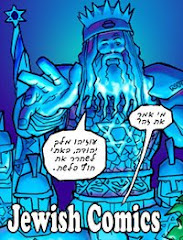The high concept of Brownsville is "Jewish gangsters of the 1930s." We tend to think of gangsters as Italian, but in Brooklyn and parts of Manhattan in the 1930s the Jews ran things, and Kleid and Allen do a great job of bringing this forgotten world to life. They focus mainly on Albert Tannenbaum, who begins like a lot of youngsters, in awe of the riches and power of the local gangsters and is looking for a way to rebel against his father. He starts small, as usual, but eventually gets in tight with the gangsters and the bosses, including Louis Buchalter. The book is about his rise and fall, but also the rise and fall of organized crime in New York, as it spans the decade of the 1930s and shows the violence these men were willing to commit and the consequences of their actions.
It's not the most original idea, but it is interesting to see it from a Jewish perspective. The book is full of historical figures and what I can only assume is factual data, and Kleid keeps everything humming along, showing what these men do and how they eventually sell each other out. There is no honor here, only looking out for themselves, which is an interesting counterpoint to the myth of the Mob. Allie, especially, is a fascinating character, as he never quite seems to fit in with the gang, even when he's committing murder. He's very much a man who yearns for his father's approval, even after he rejects everything his father stands for. In the last act of the book, when he has been arrested and must choose whether to testify against his former employers, it is his family and the reminder that you can be someone in this world even if you're not rich and powerful that pushes him to his choice. It's an interesting arc for the character.
The art is stark and powerful. Each character looks vaguely the same, but Allen still manages to give them each a distinctive look. The cast is very big, and only once or twice did I have trouble keeping track of who was who based on what they looked like. After some initial confusion, it was easy to identify each person even though they were all dressed alike and were drawn in similar fashion. Allen evokes the time period very nicely, and the book (in black and white) is a pleasure to look at.
One of the few complaints I had about the book is its lack of Jewishness, for want of a better word. Very rarely does Kleid show how these gangsters were so different from Italians. It would have been interesting to see more of a contrast between the Catholic Mob and the Jewish one. He delves into it late in the book, and it made the characters even more interesting, so it was disappointing he didn't do it sooner. After all, we think of gangsters as good Catholics, getting their babies christened while their underlings gun down competitors, and although I wouldn't have wanted Kleid to dip into those sorts of clichés, it would have been nice to see the religious aspect of these men (if it existed) fleshed out a little more.
Review: People Who Eat Darkness, by Richard Lloyd Parry
-
*People Who Eat Darkness: The True Story of a Young Woman Who Vanished from
the Streets of Tokyo- and the Evil that Swallowed Her Up*, by Richard Lloyd
...
3 years ago







No comments:
Post a Comment